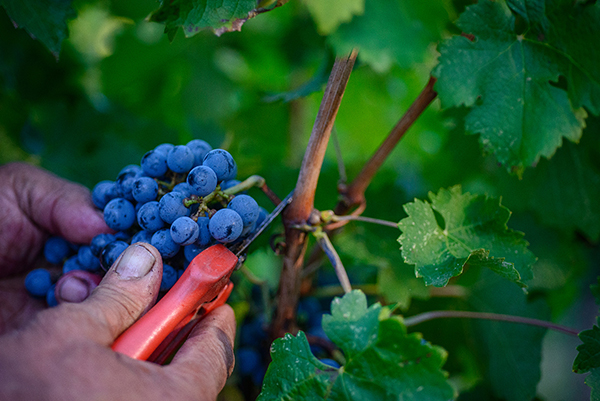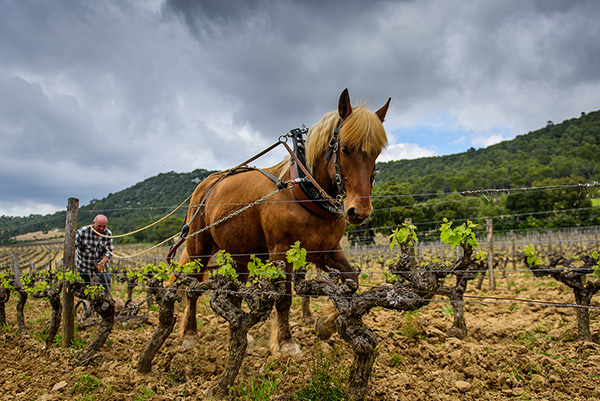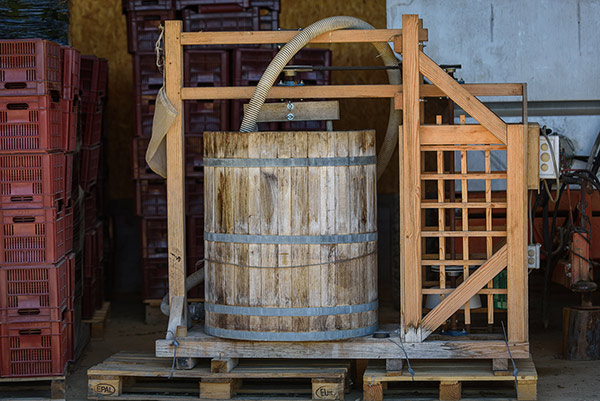Biodynamics
Our vine cultivation is based exclusively on the principles of biodynamics, in order to preserve the quality of the soils and promote a high quality production which is respectful of life. This approach was adopted in 2004 and we have held AB (Organic Farming ) and Demeter labels since the harvest of 2011.

Respecting life, considering that nature is always stronger.
Biodynamic agriculture is the earliest of the so-called “organic” methods. It’s not about natural farming in the sense of a return to nature but of actually understanding the laws of nature and observing them as best as possible in farming practices. And so all good agronomic practices which are shared with organic farming are integral parts of the method, as are the care paid to the making of compost, long rotations, the cultivation of pulses and deep rooting plants, moderate working of the soil and mechanical weeding…
Biodynamics, like organic farming, aims to avoid soil depletion through overly intensive farming. These two farming methods also avoid the use of chemical fertilisers, but differ from each other with regard to the aim of this avoidance and the rigour employed.
Biodynamics aims to produce healthy plants by forbidding the use of soluble fertilisers and pesticides, natural or not. Only composts based on plant or animal substances, which can be broken down by living organisms in the compost, are allowed.

Meticulous work which respects living things and soil structure…

Our stirring machine…
In order to control disease and pests, biodynamic farming like organic farming can use the technique of companion plants, that’s to say plants which are mutually beneficial through their proximity. Likewise in the fight against parasites, it also uses infusions, decoctions, liquid manures and preparations from various plants such as wormwood, tansy, tansy-leaved phacelia, horseradish, chives, fern root powder, pyrethrum, quassia wood and also mineral substances such as powdered lime and powdered calcified seaweed.


